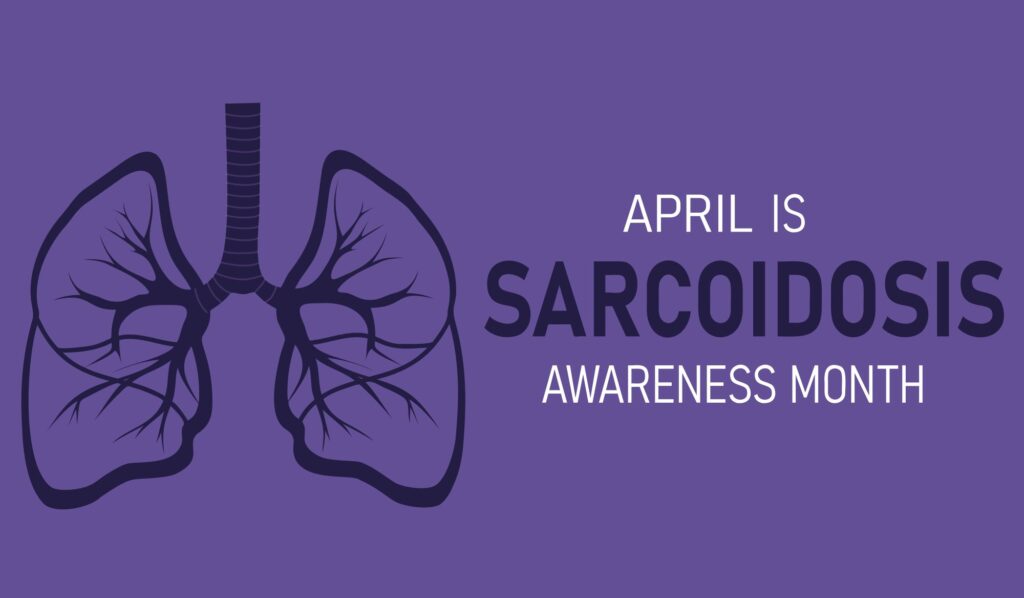April is Sarcoidosis Awareness Month. Sarcoidosis is an inflammatory disease of unknown origin. In 90% of cases, the disease leads to lung damage and is accompanied by autoimmune inflammation, resulting in the formation of granulomas—tiny clusters of inflammatory cells. It primarily affects young people, usually occurring before the age of 40. While there are cases of late-onset disease, it typically develops between the ages of 25 and 30. Environmental factors play a decisive role in the development of sarcoidosis. These factors, coupled with genetic predisposition and stress, trigger autoimmune inflammation. Chronic sarcoidosis can remain asymptomatic for many years, with reduced activity of long-term inflammation. The acute course of sarcoidosis is characterized by sudden onset, high inflammatory activity, and spontaneous regression within a few months in most cases. Unfortunately, no absolute measures for preventing sarcoidosis have been developed. However, since it’s known to be associated with smoke, dust, and other negative external factors, it’s advisable to avoid them. Due to the unknown etiology of sarcoidosis, the disease is still diagnosed by exclusion. In every second patient, the disease self-cures in its early stages without affecting life expectancy.
The GCT team has extensive experience in conducting clinical trials focused on treating autoimmune diseases. Our experience in this field includes collaborating with leading medical institutions, pharmaceutical companies, and regulatory agencies. We have successfully managed numerous trials, from early-phase studies evaluating the safety and efficacy of novel therapies to late-phase trials. If you’re interested in learning more about our experience in conducting clinical trials for autoimmune diseases, please don’t hesitate to contact us at bd@gctrials.com. We look forward to discussing how we can support your research goals and contribute to the development of effective treatments for autoimmune conditions.
